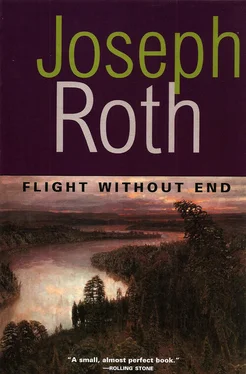Then came a passage which took Tunda somewhat by surprise. It read:
I have almost forgotten the most important matter. Three months ago a woman arrived here — the thaw had started and the days were longer — a woman like a bird. She introduced herself as my sister-in-law, she came from the Caucasus with many furs and your photograph as evidence; three weeks it had taken her. A fur-trader from Omsk brought her. She said you had sent her money, And she came to me because I was the only relative she had in the world — her uncle, a potter, had died.
Her name is Alja and she is silent the greater part of the day.
I allowed her to stay, made her a bed, and so now she lives with me. We rarely talk and I don’t ask her what she intends to do without you. She speaks very bad Russian whenever she does open her mouth.
By my standards, she is beautiful.
I can manage to give her money, if you want her to come to you. But I can also keep her here. It’s all the same to me! Write to me, poste restante at Irkutsk. Isaak Gorin, the gramophone dealer, brings my mail every month.
I have also bought a gramophone from him, and the woman who claims to be your wife often listens to it. Sometimes she cries, too. Maybe she cries because of you, I think to myself, and tears come to my eyes also.
I once thought of bringing Ekaterina Pavlovna here, but she won’t come. She has saved some money. She says she doesn’t want to die among wolves, but in the town, among human beings.
So Tunda could go back to Baranowicz, whom he had left to seek Irene.
He could go back. His wife was already waiting for him.
He saw his brother’s farmstead, the two dogs, Barin and Jegor, the great copper cauldron in which the meat cooked, the elk-skins on the low bed, he heard the striking of the clock, and the faint groan it emitted before each stroke, and the sharp rapping of the raven’s beak on the window-sill.
But he did not yearn for the taiga . It seemed to him that his place and his destiny were here. He lived in an odour of corruption and fed on rottenness, he breathed the dust of the disintegrating houses and listened with delight to the song of the woodworms.
He still had Irene’s photograph, exactly as he had carried it for years. It lay on his breast. It accompanied him through the streets. He stood there on the Place de la Madeleine, and looked down the Rue Royale.
That was when I met Tunda.
It was August 27th, 1926, at four in the afternoon. The shops were full, women crowded the department stores, models gyrated in the fashion salons, idlers gossiped in the confectioners, the wheels span in the factories, beggars deloused themselves on the banks of the Seine, loving couples embraced in the Bois de Boulogne, children played on the roundabouts in the public gardens. It was at this hour that my friend Tunda, thirty-two years of age, healthy and vigorous, a strong young man of diverse talents, stood on the Place de la Madeleine, in the centre of the capital of the world, without any idea what to do. He had no occupation, no desire, no hope, no ambition, and not even any self-love.
No one in the whole world was as superfluous as he.
* Private trading and speculation was allowed for a short period after the Revolution under Lenin’s New Economic Policy. (Tr.)
* One of Vienna’s most elegant shopping and promenading streets. Trs.












